What Stores Sell Jewellery Boxes?
Struggling to find the perfect place to buy a jewellery box? Finding the right retailer can feel overwhelming with so many options. You need a reliable source for quality boxes.
You can buy jewellery boxes from department stores, dedicated jewellery shops, large retailers like Target or Walmart, online marketplaces such as Amazon and Etsy, and specialized gift shops. Many home goods stores also carry a selection of jewellery storage options.
Finding the right jewellery box often means knowing where to look and what you're looking for. Whether you need something simple or elaborate, many places offer solutions. Let's explore some common names, specific stores, alternatives, and why quality matters – which often comes down to how they're made. This insight is crucial, especially if you're thinking about producing these items yourself.
What Are Jewellery Boxes Called?
Choosing a gift but getting tangled in terminology? Different names describe jewellery storage, making it confusing. You want clarity to find or describe the right item.
Jewellery boxes are also called jewellery chests, caskets, cases, or organizers. The name often depends on the size, style, and specific features, like compartments or locking mechanisms. Terms like "keepsake box" or "trinket box" are also used for smaller versions.
!
Understanding the different terms helps narrow down your search or even define a product you might want to create. In my experience working with Kylin Machine, which specializes in machinery for making high-quality boxes 1, the terminology often reflects the construction and purpose. Let's look closer at the types.
Breaking Down the Names
The name often hints at the box's characteristics. Thinking about these details is important whether you're buying one or considering manufacturing them.
- Jewellery Box: This is the general, common term. It usually refers to a container specifically designed with compartments, slots, or cushions for various jewellery types.
- Jewellery Chest: Suggests a larger, more substantial box, often with multiple drawers and compartments. Think of it like a mini piece of furniture.
- Jewellery Casket: This term sounds a bit older or more formal. It often implies a decorative, sometimes ornate box, perhaps used for valuable pieces.
- Jewellery Case: Often used for travel-sized or portable options, designed to keep jewellery secure on the go.
- Jewellery Organizer: This term focuses on function – systems designed to separate and display jewellery, sometimes including hanging sections or trays. It might not always be a traditional "box."
- Keepsake/Trinket Box: These are usually smaller, decorative boxes, suitable for a few special items rather than a large collection.
Materials and Construction Influence Terms
How a box is made also plays a role. For example, a "wooden jewellery chest" clearly defines the material. In the manufacturing world, we think about this constantly. The machines we build at Kylin Machine are designed to work with specific materials to create precise, durable structures, whether it's a simple rigid box or a complex decorative one 1.
| Box Type | Common Material(s) | Key Feature(s) | Typical Use |
|---|---|---|---|
| Chest | Wood, Leatherette | Drawers, large size | Large collections, dresser display |
| Case (Travel) | Fabric, Leather, Plastic | Compact, secure closures | Portability, travel |
| Organizer | Acrylic, Fabric, Metal | Visible storage, specific holders | Easy access, display |
| Casket/Keepsake | Metal, Wood, Lacquer | Decorative, often lined, smaller size | Special pieces, gifting |
| Round Box | Cardboard, Specialty Paper | Cylindrical shape | Unique items, gifting 2 |
| Plastic Box | Plastic | Often functional, sometimes hinged 3 | Basic storage, mass market |
Understanding these names and constructions helps you choose the right box as a consumer. For businesses in packaging, knowing these distinctions is key to meeting market demands and producing desirable products.
Does Target Sell Jewelry Boxes?
Wondering if a quick trip to Target will solve your jewellery storage needs? Big retailers offer convenience but sometimes limited selection. You need to know if they stock what you're looking for.
Yes, Target typically sells jewellery boxes and organizers. Their selection often includes various styles, sizes, and price points, usually found in the home organization or accessories departments. Availability can vary by store and season.
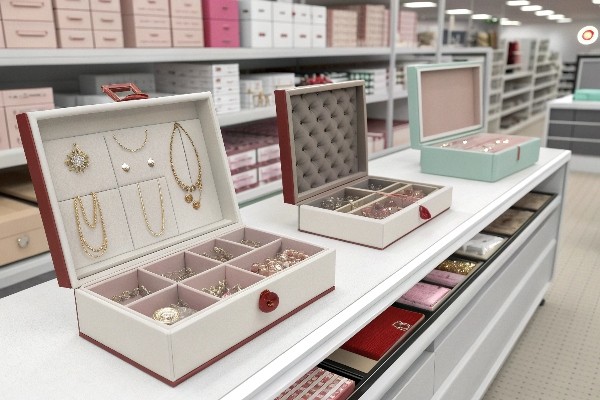
Target and similar large retailers are convenient options for accessible jewellery storage solutions. While they offer variety, the uniqueness or high-end quality might differ from specialized stores. Thinking about the mass production of such items brings me back to the machinery side – efficiently producing appealing boxes for large retailers requires reliable equipment like ours at Kylin Machine.
What to Expect at Large Retailers
Shopping for jewellery boxes at stores like Target, Walmart, or department stores offers certain advantages and disadvantages.
- Convenience: You can often pick one up during your regular shopping trip.
- Variety: They usually stock a range of styles, from basic organizers to more decorative boxes.
- Price Points: You can typically find options across different budgets.
- Trend Focus: Selections might follow current home decor or fashion trends.
However, there can be limitations: - Limited Specialization: You might not find high-end materials (like solid hardwoods or fine leather) or highly specialized designs (like antique reproductions or custom-built boxes).
- Mass Production Quality: While functional, the intricate craftsmanship might not compare to items from dedicated artisans or luxury brands.
- Stock Fluctuation: Popular items can sell out quickly, and seasonal changes affect availability.
The Manufacturing Angle
From my perspective at Kylin Machine, supplying large retailers involves understanding volume, cost-effectiveness, and consistent quality. The machines used to produce boxes for this market need to be efficient and reliable.
Consider the types of boxes often found at Target:
| Feature | Description | Manufacturing Implication |
|---|---|---|
| Materials | Often uses MDF, paperboard, faux leather, plastic, or fabric coverings. | Requires machines versatile enough for various materials. |
| Construction | Typically involves wrapped rigid board, glued seams, sometimes hinged lids. | Needs precise cutting, grooving, gluing, and assembly machines. |
| Inserts | Fabric-lined compartments, ring rolls, sometimes removable trays. | May involve die-cutting and manual or semi-automated insertion. |
| Packaging | Usually comes in a simple branded box or clear wrap. | Efficient end-of-line packaging solutions are necessary. |
While stores like Target provide accessible options for consumers, businesses aiming to supply these retailers need robust manufacturing capabilities. Producing appealing, cost-effective jewellery boxes in large quantities relies heavily on the right post-press machinery 4.
What Can I Use Instead of a Jewellery Box?
Can't find the perfect jewellery box or just need a temporary solution? Traditional boxes aren't the only way to store jewellery. You might need creative or readily available alternatives.
You can use decorative dishes, tiered trays, repurposed teacups, wall-mounted organizers, drawer inserts with dividers, or even small decorative bowls as alternatives to a traditional jewellery box. Choose based on your collection size and style.
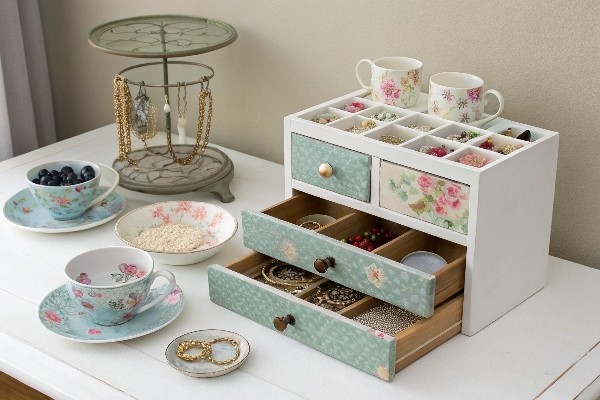
Sometimes thinking outside the box (pun intended!) leads to great solutions. These alternatives can be stylish and functional. However, they might lack the specific protective features of a dedicated jewellery box. This highlights the value proposition of well-designed boxes, something we focus on when developing machinery for box production at Kylin Machine.
Creative Storage Solutions
Let's explore some popular and inventive alternatives:
- Decorative Dishes/Trays:
- Pros: Easy access, displays pretty pieces, readily available in home decor stores.
- Cons: Offers no protection from dust or scratches, items can tangle, not suitable for travel.
- Best For: Rings, earrings, frequently worn items placed on a nightstand or dresser.
- Tiered Trays (e.g., Dessert Stands):
- Pros: Utilizes vertical space, good separation, visually appealing.
- Cons: Open to dust, necklaces can still tangle if not careful.
- Best For: Bracelets, watches, earrings, larger collections needing organization.
- Repurposed Items (Teacups, Egg Cartons, Ice Cube Trays):
- Pros: Unique, low-cost, good for small items like rings or earrings.
- Cons: May not fit larger pieces, might not look cohesive, offers minimal protection.
- Best For: Small collections, drawer organization, DIY projects.
- Wall-Mounted Organizers (Hooks, Mesh Screens):
- Pros: Saves surface space, keeps necklaces untangled, makes items visible.
- Cons: Exposed to dust and potential tarnish, less secure.
- Best For: Necklaces, bracelets, earrings (especially hook type).
- Drawer Inserts/Dividers:
- Pros: Keeps jewellery hidden and organized within furniture, customizable layouts.
- Cons: Requires drawer space, less portable, may need lining for protection.
- Best For: Integrating storage into existing furniture like dressers or closets.
Why Purpose-Built Boxes Still Matter
While these alternatives work, they often lack features found in dedicated jewellery boxes:
- Lining: Soft fabric prevents scratches.
- Compartments: Prevents tangling and damage from items knocking together.
- Closure: Protects from dust, moisture, and light which can cause tarnish.
- Security: Locks offer protection against theft.
As someone involved in making the machines that create high-quality boxes 1, I see the thought that goes into designing features that protect valuable contents. If you're a business producing boxes, incorporating these protective elements is a key selling point. The demand for functional, protective storage persists even with creative alternatives available.Are Jewelry Boxes Good for Jewelry?
Considering if a jewellery box is truly necessary or just decorative? Storing jewellery improperly can lead to damage or loss. You want to know if a box offers real benefits.
Yes, jewellery boxes are generally very good for jewellery. They provide protection from dust, scratches, tangling, and potential tarnish by offering organized compartments, soft linings, and enclosed storage. A good box helps maintain the condition and longevity of your pieces.
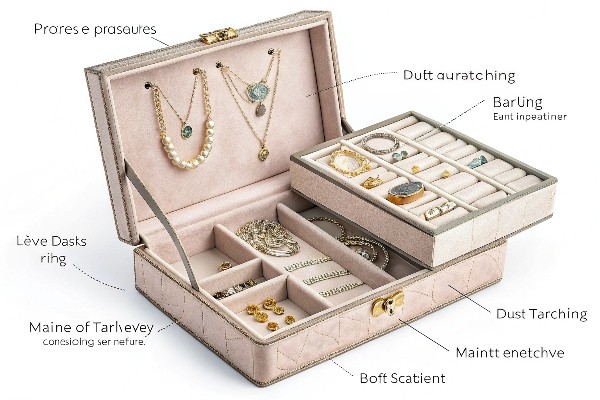
Investing in a decent jewellery box is investing in the care of your jewellery. While alternatives exist, a purpose-built box offers the best combination of organization and protection. From a manufacturing standpoint at Kylin Machine, creating boxes that deliver this protection effectively requires precision and quality materials – it’s what makes a box truly functional.Benefits of Using a Jewellery Box
A well-designed jewellery box offers several advantages over simply leaving items out or jumbled in a drawer:
- Organization:
- Problem Solved: Prevents tangled chains, lost earrings, and difficulty finding specific items.
- Feature: Dedicated compartments, ring rolls, earring grids, necklace hooks.
- Manufacturing Insight: Requires precise internal structures, often involving die-cut inserts or custom partitions achievable with specialized machinery.
- Protection from Physical Damage:
- Problem Solved: Stops scratches, chips, and dents caused by pieces rubbing against each other.
- Feature: Soft linings (velvet, felt, suede), individual compartments.
- Manufacturing Insight: Lining application needs to be smooth and secure, often a manual or semi-automated step after the box structure is formed.
- Protection from Environmental Factors:
- Problem Solved: Reduces exposure to dust, moisture, and direct sunlight, which can cause tarnish (especially for silver) or fading.
- Feature: A lid or enclosed design.
- Manufacturing Insight: A well-fitting lid requires accurate box construction – something our rigid box-making machines focus on 1.
- Security:
- Problem Solved: Deters casual theft or misplacement.
- Feature: Some boxes include locks and keys.
- Manufacturing Insight: Incorporating hardware like locks or hinges 3 adds complexity but also value, requiring specific machine capabilities or manual assembly steps.
What Makes a "Good" Jewellery Box?
Not all boxes are created equal. Key factors include:
| Feature | Why It Matters | Consideration for Producers |
|---|---|---|
| Lining | Soft, non-abrasive material prevents scratches. | Material sourcing, clean application process. |
| Construction | Sturdy build, smooth edges, well-fitting lid. | Quality board, precise cutting/grooving, strong adhesion (glue). |
| Layout | Suitable compartments for your specific collection. | Design flexibility, ability to create varied internal structures. |
| Materials | Durable outer material, non-reactive interior. | Choice impacts cost, aesthetics, and machine compatibility. |
From my experience at Kylin Machine, producing a "good" jewellery box that truly protects its contents relies on quality machinery that ensures consistent dimensions, strong assembly, and the ability to incorporate protective features effectively. It's about creating value beyond just a container.
Conclusion
You can find jewellery boxes in many stores, from large retailers to specialty shops. Understanding different types and considering alternatives helps, but a quality box offers the best protection.
Disclaimer: I, Jacob, work for Kylin Machine (www.kylinmachines.com), which manufactures machinery used to produce high-quality rigid boxes, including potentially jewellery boxes, in China. While this article discusses where to buy jewellery boxes, our business focuses on enabling companies to manufacture them.
-
Distrubitor Price list To arnold (Mentions machines for Gift boxes, rigid boxes, Decorative boxes) ↩ ↩ ↩ ↩
-
round box machine (Mentions round boxes) ↩
-
Detail of Hinges attached machine (Mentions machine for inserting hinges into plastic jewelry boxes) ↩ ↩
-
https://postpressmachines.com/ (General reference to post-press machines relevant to box making) ↩


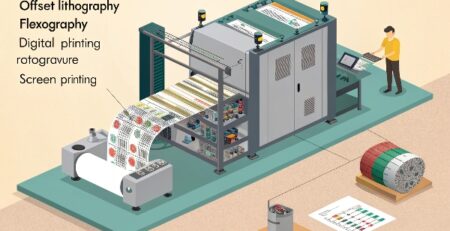
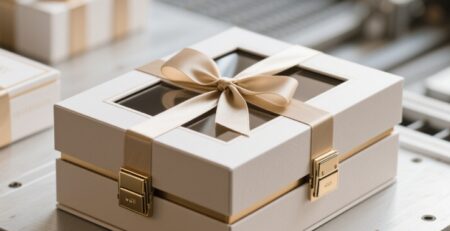
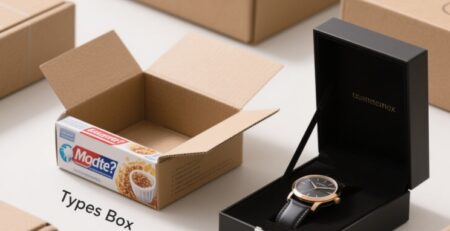
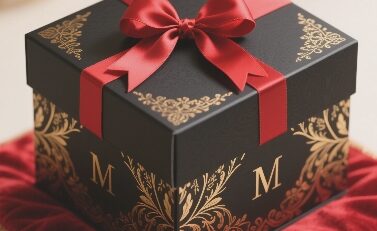
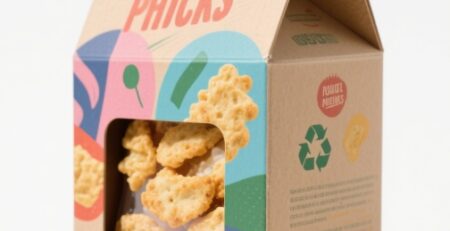
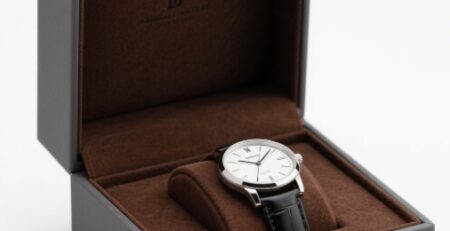
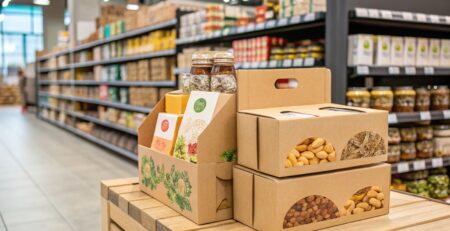
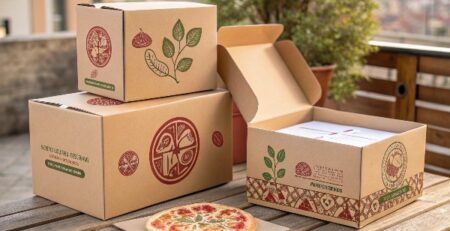
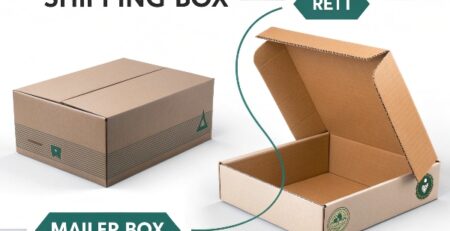
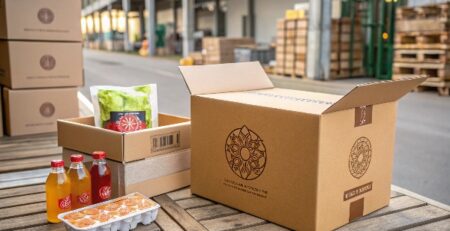
发表回复